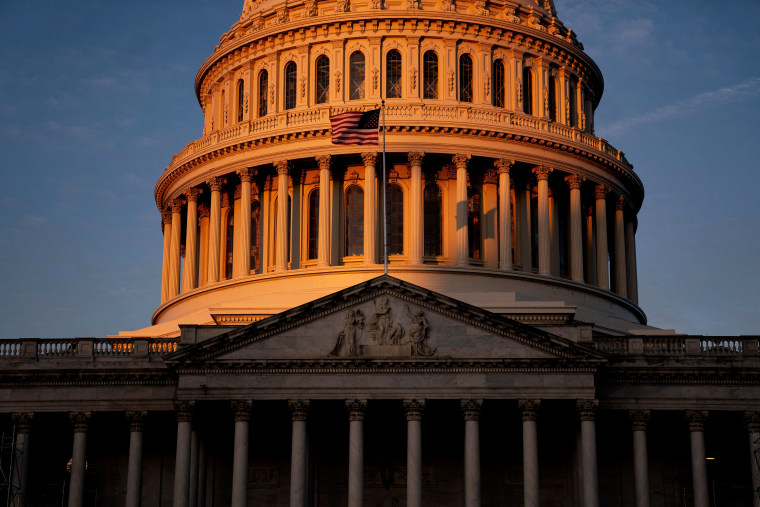
The Sunshine Protection Act stalled in the House after it passed the Senate last year by unanimous consent.
Get more news Live March 2, 2023, 10:09 PM UTCSen. Marco Rubio, R-Fla., has reintroduced legislation to make daylight saving time permanent across the country, which he says would end the "antiquated practice" of changing clocks twice a year.
“This ritual of changing time twice a year is stupid. Locking the clock has overwhelming bipartisan and popular support. This Congress, I hope that we can finally get this done," Rubio said in a statement Thursday.
The bill, called the Sunshine Protection Act, passed the Senate last year by unanimous consent, meaning no senators opposed it. But it stalled in the House and expired at the end of the last session of Congress.

If it is enacted, daylight saving time, which begins in March and ends in November, would become permanent year-round in the U.S.
American Samoa, most of Arizona, Guam, Hawaii, the Northern Mariana Islands, Puerto Rico and the Virgin Islands do not observe daylight saving time and would not be required to under the legislation.
Several senators in both parties co-sponsored the original bill, including James Lankford, R-Okla., Ron Wyden, D-Ore., Cindy Hyde-Smith, R-Miss., Rick Scott, R-Fla., Tommy Tuberville, R-Ala., and Ed Markey, D-Mass.
“Alabamians have overwhelmingly expressed their support for the Sunshine Protection Act, and I promised them I’d continue pushing to do away with the outdated practice of adjusting our clocks twice a year," Tuberville said in a statement shared by Rubio's office. "It’s time for America to move forward and stop falling back. Congress should listen to the people and make Daylight Saving Time permanent."
Markey said: “It’s past time for Congress to broaden its horizons and finally make daylight saving time permanent. With the Sunshine Protection Act, we can shine a light on the darkest days of the year and deliver more sun, more smiles, and brighter skies.”
Rep. Vern Buchanan, R-Fla., has introduced companion legislation in the House.
“There are enormous health and economic benefits to making daylight saving time permanent," Buchanan said in a statement. "Florida lawmakers have already voted to make daylight saving time permanent in my home state and Congress should pass the Sunshine Protection Act to move Florida and the rest of the country to year-round daylight saving time.”
The U.S. first adopted daylight saving time in 1918 to save oil and electricity during World War I. But now, it isn’t associated with energy savings.
A 2011 study found that it cost Indiana households an extra $9 million per year in electricity bills because they spent more on heating and cooling, even though people used lights less often.
“The real reason for why this policy came to be and we first started using it was because of energy, and right now it’s a completely open question about whether or not it saves energy,” said Matthew Kotchen, an economics professor at Yale University who conducted the research.
The country most recently experimented with permanent daylight saving in 1974, but that ended less than a year later, after eight Florida children died in traffic accidents attributed to the change.
“Every time it’s been tried in places, they often repeal it soon after,” Kotchen said.
Christina Zhao is a politics editor for NBC News, based in New York.